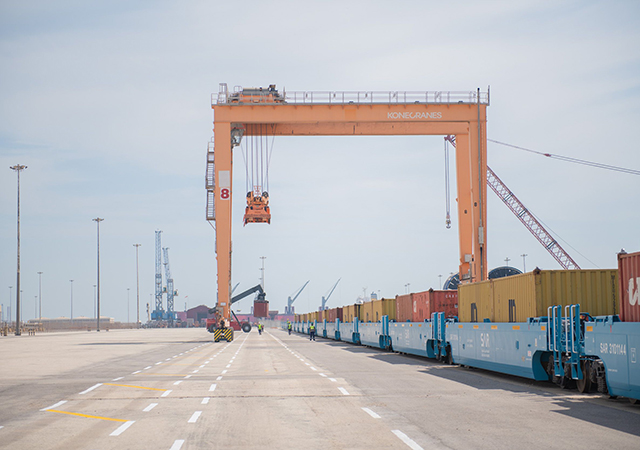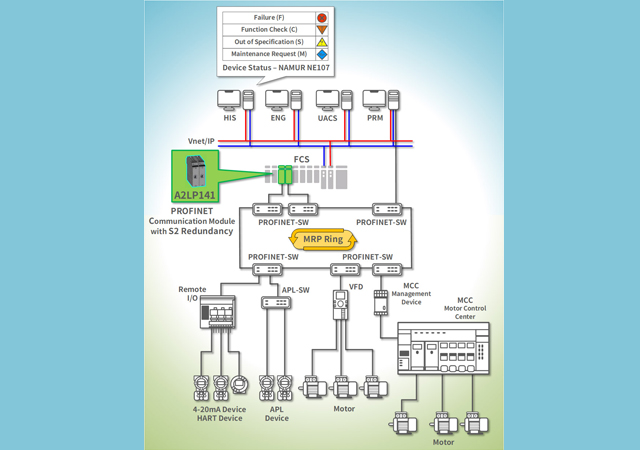
 Economic diversification is seen critical to Iraq’s growth
Economic diversification is seen critical to Iraq’s growth
As elsewhere in the world, Covid-19 has dealt a severe blow to Iraq’s economic activities, especially the services sectors like transport, trade, banking and religious tourism, which constitute around half of the non-oil economy.
Faced with a combination of acute shocks which the country is ill-prepared to manage, Iraq’s economic outlook has markedly worsened over the past six months. GDP growth is projected to contract by 9.7 per cent in 2020, down from a positive growth of 4.4 percent in 2019, making it the country’s worst annual performance since 2003, according to a new World Bank report released recently.
The Spring 2020 edition of the Iraq Economic Monitor, “Navigating the Perfect Storm (Redux)” finds that Iraq’s pre-existing conditions going into this crisis limit its ability to manage and mitigate the socio-economic impact resulting from low oil prices, reduced oil production quotas and disruptions due to the Covid-19 lockdown measures.
Iraq’s highly oil-dependent and state-owned economy impedes the creation of the needed private sector jobs for a predominantly young population. Furthermore, the growing discontent over poor service delivery, rising corruption, and lack of jobs persists and is coupled with political impasse over the formation of a new government.
“Fiscal discipline and economic diversification through more private sector participation are critical to reduce Iraq’s vulnerabilities to external shocks,” said Saroj Kumar Jha, World Bank Mashreq Regional Director.
“A reform oriented and growth enhancing programme will help sustain the reconstruction efforts and preserve the positive improvements achieved in the electricity and agriculture sectors over the past year. Such a programme is also key to create the much-needed jobs for the youth and help restore the confidence of Iraqi citizens,” he added.
The unsustainable stimulus package introduced since last October – including a rising public sector employment, lower retirement age, and various transfers – coupled with weaker oil revenues are expected to have detrimental fiscal effects. In case oil prices stabilise in the low-30s and no reform measures are taken, the budget deficit would exceed 29 per cent of GDP in 2020 and gross financing needs would reach $67 billion (over 39 per cent of GDP).
With this context, it has become critical for Iraq to embark on a comprehensive forward-looking economic reform agenda to enable private sector led growth, diversification and job creation. Such a programme could be based on two pillars: i) Tackling cross-cutting impediments to private-sector led diversification through fiscal sustainability and economic governance, financial sector reforms, business environment reforms, Improving human capital outcomes, as well as social protection and labour system reforms; and ii) Improving governance and promoting private sector participation in selected productive sectors like agriculture and agri-food Industries, electricity and gas.
The political and social turmoil and lack of reforms to boost private sector participation will continue to put pressure on the services sector. As a result, non-oil GDP growth is expected to decelerate to 2.7 per cent by 2021, the World Bank report noted.
The protests that erupted in November 2019 have had a considerable impact on the services sector which decelerated to 0.9 per cent in Q4-19. However, record agriculture yields from above-average rainfalls coupled with 33 per cent electricity production expansion and a fiscal loosening have offset such an impact, said the latest update on Iraq’s economy by World Bank.
“As a result, non-oil GDP grew by 4.9 per cent in 2019. The oil sector was not affected by the social unrest despite refinery road closures. With a 5 per cent rise in production, oil has been the lynchpin for economic activity. As such, GDP growth was 4.4 per cent for the year,” it noted.
A Focus Economics report also sees the economy contracting sharply this year due to a weaker energy sector and containment measures. “Risks are skewed to the downside, and stem from a possible resurgence of social unrest, Iran-US tensions and a potential prolonged outbreak necessitating further containment measures. Our panelists forecast a contraction of 6.5 per cent in 2020, which is down 1.3 percentage points from last month’s estimate, and growth of 3.8 per cent in 2021,” FocusEconomics Consensus Forecast Middle East & North Africa report said.
“Heading into Q3, the surge in coronavirus cases in recent weeks bodes poorly for Iraq’s economic activity. Moreover, while oil prices have risen from April’s lows, they are still notably below Iraq’s fiscal breakeven point, and the government is reportedly in talks with the IMF over a potential financial support package,” it added.
“Nationwide violent protests will subside in the first half of 2020, but will return later in the year and carry on intermittently during 2021-24. The economy will contract by 6.3 per cent in 2020, as oil revenue plummets, owing to a coronavirus-related fall in demand,” forecasts a country update on Iraq by EIU.

















